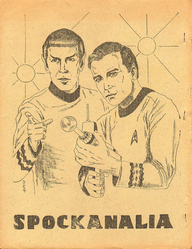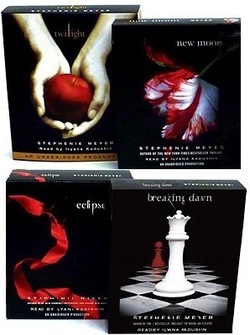 image via amazingstoriesmag.com image via amazingstoriesmag.com By Mikaela Langdon Before the internet, fans of books, movies, and television shows had to keep their opinions and ideas about characters and storylines largely to themselves. At most, they might have shared them with friends or relatives. Now we’re in an age where people can share ideas at the push of a button. This has opened up the doors for something known as “fanfiction”: original stories with characters, settings, and sometimes other characteristics borrowed from popular culture. This concept originated, surprisingly, prior to the internet age in Star Trek fanzines such as Spockanalia (1967). This zine contained fanfiction written about the popular science-fiction show and was mailed to super-fans for their enjoyment. With the invention and advancement of the internet, fanfiction has practically become its own industry, allowing fans to become co-creators with the writers they so admire. These works are not intended for publication, at least not in their initial format, and give full credit to the original authors or creators. Fanfiction is not meant to overshadow the original content but rather to celebrate it. But what happens when a fanfiction author takes characters we all know and love and makes them her own, complete with a new backstory and personality? At what point does fanfiction go far enough from the source and just become regular fiction?
0 Comments
 by Elaine Paliatsas-Haughey Once again in my teaching career I am seated across a school room table from the parents of a student who is struggling to read. I say, "Little Janie is reading on a third grade level in fifth grade and would really benefit by reading at home, along with the remedial instruction she is receiving here at school." They ask, "What should we have her read?" I launch into an enthusiastic list of book titles recently out for elementary age students and they are on board. I mention classics from their own childhoods, like Ramona the Brave and The Hardy Boys. Things seem to be going well and everything is falling into place until I say, "And she doesn't have to read just traditional books. She can read manga and graphic novels. Try poetry or magazines. If there is a particular website she enjoys, encourage that. She can read the cereal box out loud to you during breakfast if you want!" I see I've become too impassioned at that point. Now I've lost them. What I find in the rest of our conversation is that I lost them after traditional books. Often, because parents associate learning with only classic literary stories the idea of using almost any other form of written word to educate youngsters is foreign territory. They cannot see the value in other forms or genres.  photo: Goodreads photo: Goodreads by Gabrielle Lund Argue that the love triangle in The Hunger Games was unnecessary (and I’ll most likely agree with you.) Guffaw at the tension, both “sexual” and aggravating, of Edward and Bella as he refuses to turn the one girl he loves into a vampire (and I’ll probably wince at the memory of the writing in these scenes.) But do not disclaim their success. These books are all members of The New York Times Bestsellers’ List for a reason and it has little to do with their contrived plots. Stephanie Meyers and other YA authors have continuously proven that an idea which involves one girl, in a vulnerable, desperate situation (where she happens to look like the pretty girl next door, but not a model), and two guys (bloodsuckers or tributes fighting for their lives) who love her, will, nine times out of ten, fly off the shelves. |
Archives
July 2024
Categories
All
|
|
Glassworks is a publication of Rowan University's Master of Arts in Writing 260 Victoria Street • Glassboro, New Jersey 08028 [email protected] |
All Content on this Site (c) 2024 Glassworks
|

 RSS Feed
RSS Feed
